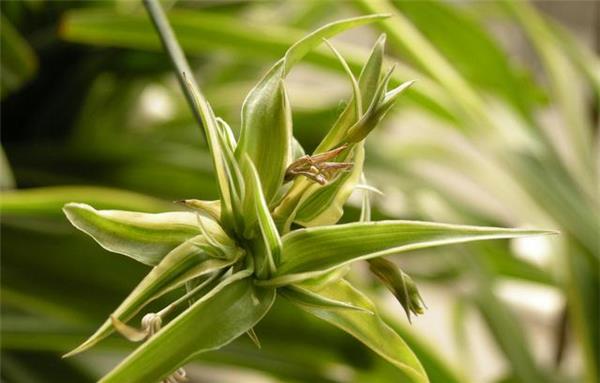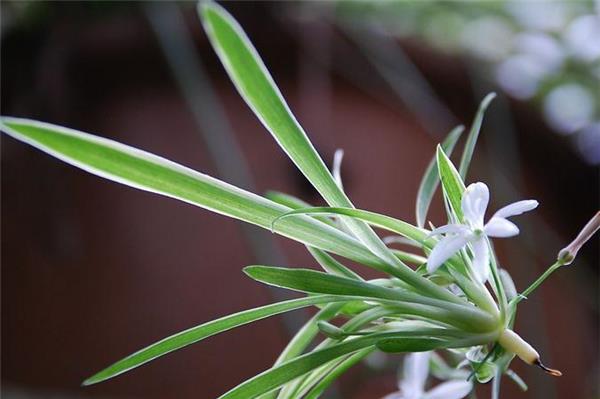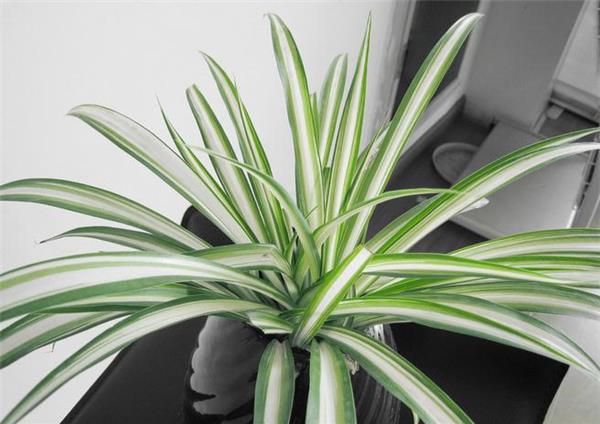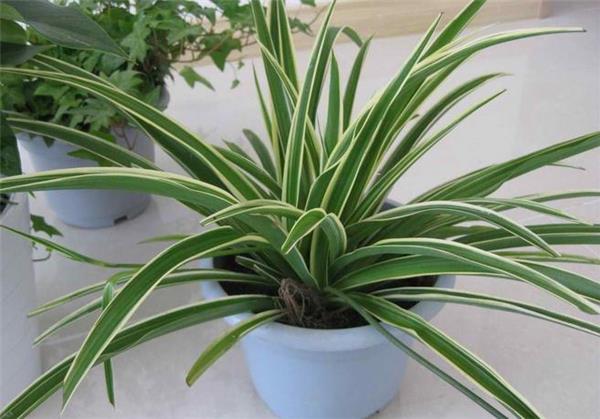What is the reason why the leaves of Cymbidium are yellow?
When many friends raise Cymbidium, they often encounter the situation that the leaves of the orchid turn yellow. So, what are the reasons for the yellowing of orchid leaves? What should we do with it? Next, let's take a look at it.

Causes and treatment methods of yellowing of Cymbidium leaves
1. Improper fertilization: excessive fertilization causes yellowing of leaves, which exceeds the needs of the plant. At first, the leaves are bright and uneven, and then the roots rot, and the leaves are yellow.
Treatment method: should stop fertilizing, irrigate more water, or turn the pot to clean the root and replace the new soil.
2. Nutrient loss: all kinds of nutrient elements in the basin soil have been exhausted, the three elements of nitrogen, phosphorus and potassium have not been replenished in time, the plant is lack of nutrients, and the leaves are yellow and thin.
Treatment method: fertile loam and fertile water should be replaced in time.
3, lack of sunlight: although the orchid is a semi-negative flower, it should see more than four hours of astigmatism at least every day, otherwise the chlorophyll will decrease and the leaves will turn yellow.
Treatment: should set aside free time every day to put the orchid in the sun for a few hours, but not too much exposure to the sun.
4. poor air permeability and water permeability of basin soil: stagnant water in basin soil does not dry for a long time, and it is difficult to breathe in the root system, resulting in yellowing leaves.
Treatment method: loosen the soil and control moisture in time. Fifth, it is impervious to water for a long time. The roots of Cymbidium lose water, and the lower old leaves turn yellow. It should be watered thoroughly to keep the basin soil warm and moist.

Tips on the maintenance of hanging orchids
Light
Hanging orchids like semi-overcast environment, spring and autumn should avoid strong direct sunlight, summer sun is particularly strong, can only see some oblique light in the morning and evening, during the day need to cover 50% of the sun's 70%, otherwise it will make leaf tips dry, especially flower and leaf varieties, more afraid of strong sunlight, Phnom Penh orchids grow more beautiful in places with weak light, yellow edges are more obvious, leaves are brighter. But it should be more sunny in winter in order to keep the leaves tender and fresh green. The family potted orchid should be placed in front of the south window, otherwise the leaves will lose their luster and even wither. When conditions permit, it is best to rotate the flowerpot to a fixed direction about 15 °a week to ensure that the drooping degree of the orchid is the same.
Watering
The hanging orchid likes the wet environment, and the basin soil is easy to keep wet. Summer watering should be adequate, around noon and evening should also spray water on the branches and leaves, timely cleaning the dust on the leaves to prevent the leaves from drying up. However, the fleshy roots of Cymbidium can store a lot of water, so they have a strong ability to resist drought and will not dry to death if they are not watered for several days. Under 5 ℃ in winter, less watering, basin soil should not be too wet, otherwise the leaves will be easy to yellowing.

Fertilizer application
Cymbidium is a more fertilizer-tolerant foliage plant, if the lack of fertilizer and water, it is easy to scorch head aging, leaves yellowing, loss of ornamental value. From late spring to early autumn, organic fertilizer can be applied every 7-10 days, but less nitrogen fertilizer should be applied to Phnom Penh, Jinxin and other mosaic varieties, lest the color of flowers and leaves fade or even disappear. The retting organic fertilizer such as bone powder and eggshell can be applied properly. after full fermentation, take appropriate amount of diluent and irrigate every 10-15 days to make the flowers and leaves bright and bright.
Pruning
Usually cut off the yellow leaves at any time. The basin can be turned once a year in March to cut off the old root, rotten root and excess fibrous root. Cutting off some of the old leaves of Cymbidium in the first and middle of May will promote the germination of more new leaves and small orchids. The root system of Cymbidium is quite well developed, and the flowerpot should be changed in time after breeding for a period of time, so as to avoid root accumulation, resulting in yellow leaves, wilting and other phenomena.

This is the end of the introduction of the causes and treatment methods of the yellowing of Cymbidium leaves. I believe that after reading it, we have a certain understanding of the reasons for the yellowing of Cymbidium leaves. I hope the content introduced today will be of some help to all of you.
Related
- Wuhan Hospital Iron Tree Blooming Result Was Instantly Frightened by the Gardener Master
- Which variety of camellia is the most fragrant and best? Which one do you like best?
- What is the small blue coat, the breeding methods and matters needing attention of the succulent plant
- Dormancy time and maintenance management of succulent plants during dormancy
- Minas succulent how to raise, Minas succulent plant pictures
- What are the varieties of winter succulent plants
- How to raise succulent plants in twelve rolls? let's take a look at some experience of breeding twelve rolls.
- Attention should be paid to water control for succulent plants during dormant period (winter and summer)
- Watering experience of twelve rolls of succulent plants
- Techniques for fertilizing succulent plants. An article will let you know how to fertilize succulent plants.



